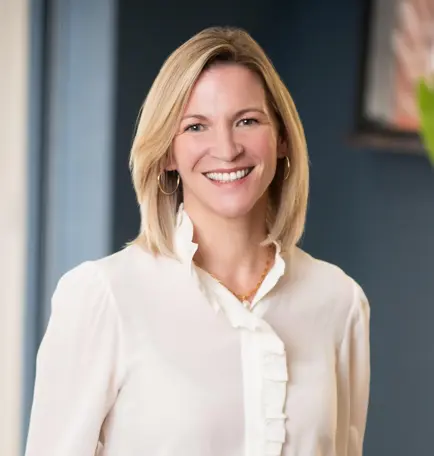
Inflexion’s latest Sustainability Exchange invited the portfolio to hear about how they’re managing the changing backdrop around sustainability. It remains relevant – perhaps more so as the evolution of rules mean the materiality of efforts are more important than ever.
Despite increasingly audible opposition to sustainability, mainly in the US, there are significant and encouraging counterbalances, according to Jennie Galbraith, Sustainability Director at Inflexion. She points to a large-and-growing number of legal cases against new US executive orders as well as pending legislation in Europe as evidence - and adds that half of millennials and Gen Z have declined jobs based on organisational values. “It’s a sign of the ongoing importance of these issues despite the noise we are hearing today. We’re in a period of change. We’ll see a shift in language used, which will become more precise. Some companies will pause action - and may change yet again. The current time is an opportunity to reassess what you’re doing and pursue only what makes most sense for you.”
She invited a panel of portfolio experts to discuss recent developments.
Jennie: Executive Orders from the new US Administration and the last-minute rollback of the CSRD regulation has complicated our work as practitioners. How have you handled this?
Omar El Nayal, Director of Strategy and ESG, enviolo: The change in regulation has meant that we are now no longer under scope.
But being free of CSRD doesn’t mean we’re abandoning our commitment to the environment or people; we are taking positive learnings and applying them going forward. We didn’t like the 1,400 data points involved – but we are retaining three things from our CSRD efforts: 1) double materiality was absolutely fundamental to our ESG strategy as it helped us define our 11 material topics. 2) We formalised and significantly improved our ESG data collection and validation processes, and we assigned cross-functional data owners - who are now real ESG champions within the business. 3) We’ve committed to voluntary reporting. It is typical for smaller businesses to view reporting merely as a ‘must-do’ but now we see the value and will do so voluntarily. We just published our first sustainability report.
Jane Collins, VP, Engagement, Development & Inclusion, Curinos: The majority of our people are based in the US. There have been constraints applied on D&I at the federal level, and at the state level there are further limitations, particularly around unconscious bias training, and it’s caused a lot of fear. Some firms are putting efforts on hold because they are afraid of the risk of external firms or individuals challenging the legality of what is done. It means any programmes focused on addressing representation gaps at different levels cannot happen in the same format next year; we will re-design to open it to all.
Abi Duff-Walker, Head of Sustainability, DWF: Largely due to the location of our operations, and the fact that we were not due to fall directly into scope for CSRD in the first instance, our position is somewhat adjacent to the direct challenges being experienced by some. We do however have a heightened awareness of how this is now affecting our clients, and we are continuing to stay agile as that we can respond effectively to any future reporting requirements that may arise. What these changes have done is to reinforce the value of our approach, which is to align our work to robust frameworks and international standards that remain consistent. In particular, it has highlighted our commitment to ensuring our work contributes to delivering the UN Sustainable Development Goals.
From a client perspective, what we have seen a lot is that for those who had already upped their ambition and commitment to responsible business before these recent changes, their position remains and progress is undeterred. In particular we see this in areas where some of the key issues being discussed, for example climate change, present significant business risk. Therefore there is a strong recognition that we all need to play a part in managing these risks in order to deliver sustainable business growth.
People have been addressing climate change and poverty for many reasons, including financial risk. The issues are still there, regardless of any political debates.
Paul McNeillis, Director, dss+: The night before I started in this role, back in October, I was at an event sponsored by a CSRD software provider at the Gherkin, and I felt we were at a tipping point. People on the panel were talking about CSRD reporting but at the tables everyone was discussing how to go beyond that compliance burden and really make a difference to the material issues they were facing which CSRD had helped identify and detail as per its original intention. Ever since then, that focus on materiality and implementation has only deepened and has weathered the current political rhetoric.
The commitment to sustainability is still there - but now requires that sharper, clearer business rationale and operational implementation plan. That focus on materiality is something that’s shaken out of the change in sentiment - it’s an opportunity to look at the issues that matter most to us - helping find the sweet spot between financial performance and sustainability. Finally, it’s about practical implementation; about setting targets and having clear operationally and commercially viable plans to deliver your targets and outcomes. The new world forces us to measure and articulate these things in more practical and operational terms.
What are you doing differently? How have you communicated this?
Jane: External messaging is deliberately unchanged; our site remains the same. Internally, we’ve simply changed our language. Previously we called it diversity & inclusion, with belonging implicitly part of it, now we call it inclusion and belonging. We focus on multiple areas: people – everybody has a value that contributes to our success. Our processes are fair and transparent. Our purpose, vision and values help to preserve a welcoming culture. And we encourage effective feedback mechanisms so that everyone can be their genuine self.
Do you amend messaging for different international markets?
Abi: Risk has always been a consideration and we understand the complexity of operating in different jurisdictions globally, with different sensitivities in each. So we’ve always been careful and taken a considered approach to our communications. We need to be consistent, but may make changes where a communication may need nuancing in certain geographies. Secondly, we ensure we have touchpoints in all those locations with our colleagues who play a key role in delivering our strategy globally. We can sense check some of our ideas with them before executing. Finally, we are always looking forward, horizon scanning and working with our regulatory teams and knowledge services to ensure we are prepared for any changes that may be coming.
Have you got tips for how to keep senior management engaged on this?
Omar: Following the rollback in CSRD, we’ve had some really insightful and thorough discussions with our board and management team on our future ESG roadmap. These discussions started with the key question of why we’d invested in ESG in the first place. If compliance was the only reason, then we’d naturally struggle to maintain ESG momentum as the urgency of compliance has been lifted. For us, there are other, arguably more important, reasons to push for sustainability - the reputational perspective, for our people but also when acquiring business and our own company valuation.
We firmly believe our work on CSRD wasn’t in vain - our ongoing sustainability efforts and reporting will help us stand out as the partner of choice for our customers, employees and suppliers - and will additionally expedite any prospective buyer’s diligence when considering investment. These remain our convictions, regardless of the current changes in legal mandates.
Paul: I think the challenge with clients isn’t always the sponsorship from the top but engaging the business functions. We did work with one client around risk who was able to rally the entire workforce around cultural transformation. What we advised was to stand in the shoes of the business functions - they’re the middle management between the executive and the wider organisation who are key to operational implementation. Sustainability professionals need to work harder than ever to get a deep understanding of the challenges of the organisation through those business functions, provide them with solutions to their material challenges and opportunities so that they become advocates for value creation through the sustainability mission, from top to bottom.
All Inflexion portfolio companies, regardless of size or ownership stake, have full access to our dedicated value acceleration resources covering digital enhancement (including data, AI, technology, cybersecurity and digital marketing), international expansion, M&A, sustainability, commercial strategy and talent management.




